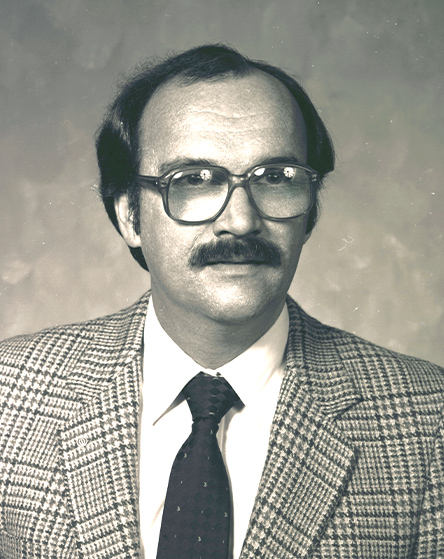Here’s how former students and fellow faculty remember him:
“He always had a paper or book to write in during our exams, but I didn’t realize until I began working with him that it was sudoku — he loved sudoku!” says Linda Prince (BS Computer Information Systems ’10, MBA ’12)
“He was tough, and the lowest grade I got in my entire CIS program was in his class,” says Belinda Chiu (BS Computer Information Systems ’11). “But the course contained the skills I have used the most since graduation, so I’m glad he was tough.”

Dr. Robert Keim
“Bob was legendary for his knowledge of trivia and his bargain-hunting,” says Professor of Information Systems Robert St. Louis. “He’s the only person I ever knew who would hunt for which parking meter had the most time remaining on it. However, I think the best indicator of what type of person he was is the fact he donated more blood than anyone else in the department or college. He truly cared about others and was always willing to sacrifice to help others.’
“Bob Keim was one of the most intelligent people I’ve ever met,” says Mike Goul, professor of information systems and senior associate dean for faculty and research. “He was a master of the history of the field of information systems: He uniquely internalized an amazing catalog of events, research findings, and detailed information about each scholar who made important contributions and why those contributions were significant. His wealth of knowledge made him one of the most important scholars in our department for doctoral students to interact with to formulate their dissertations, and for master-level graduate students to learn from regarding how information technologies manifested in major industry inflection points. For undergraduate students, Bob was always extremely knowledgeable about the most recent emerging technologies, and he was able to explain what mattered in terms of how we got where we are today. He could relate to top-level executives and those who were just beginning their computer studies. I remember how important Bob’s insights were to Apple executives in some of the early days of mass personal computing, and at the same time, I remember how seriously he took teaching basic database skills to new undergraduates. Bob was always fun to talk to and learn from, and I will miss him.”

Dr. Robert Keim
Here’s how former students and fellow faculty remember him:
“He always had a paper or book to write in during our exams, but I didn’t realize until I began working with him that it was sudoku — he loved sudoku!” says Linda Prince (BS Computer Information Systems ’10, MBA ’12)
“He was tough, and the lowest grade I got in my entire CIS program was in his class,” says Belinda Chiu (BS Computer Information Systems ’11). “But the course contained the skills I have used the most since graduation, so I’m glad he was tough.”
“Bob was legendary for his knowledge of trivia and his bargain-hunting,” says Professor of Information Systems Robert St. Louis. “He’s the only person I ever knew who would hunt for which parking meter had the most time remaining on it. However, I think the best indicator of what type of person he was is the fact he donated more blood than anyone else in the department or college. He truly cared about others and was always willing to sacrifice to help others.’
“Bob Keim was one of the most intelligent people I’ve ever met,” says Mike Goul, professor of information systems and senior associate dean for faculty and research. “He was a master of the history of the field of information systems: He uniquely internalized an amazing catalog of events, research findings, and detailed information about each scholar who made important contributions and why those contributions were significant. His wealth of knowledge made him one of the most important scholars in our department for doctoral students to interact with to formulate their dissertations, and for master-level graduate students to learn from regarding how information technologies manifested in major industry inflection points. For undergraduate students, Bob was always extremely knowledgeable about the most recent emerging technologies, and he was able to explain what mattered in terms of how we got where we are today. He could relate to top-level executives and those who were just beginning their computer studies. I remember how important Bob’s insights were to Apple executives in some of the early days of mass personal computing, and at the same time, I remember how seriously he took teaching basic database skills to new undergraduates. Bob was always fun to talk to and learn from, and I will miss him.”